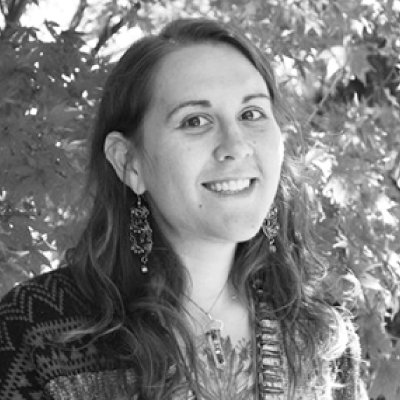
Abby Artemesia (Native Medicinal Plants of Appalachia)
Founder of the WANDER (Wild Artemisia Nature Discovery, Empowerment, and Reconnection) School, Botanist, Herbalist, & Professional Forager, Abby Artemisia, lives in Appalachian North Carolina on the edge of the national forest. She learned about plants playing in the Midwestern woods of Ohio, working on organic farms, an herbal apprenticeship, a bachelor’s degree in Botany from Miami University, and running her own tea business. She teaches about plant identification, native plants, and working with plants for food and medicine throughout the country. Her mission is offering nature and herbal education to create healing through connection with the natural world and each other. She is the author of The Forager’s Wild Edible and Herbal Plant Cards, The Wild Foraged Life Cookbook, and The Herbal Handbook for Homesteaders. She is the host of the podcast Wander, Forage, and Wildcraft, and founder of The WANDER School, which recently became a nonprofit to provide herbs, herbal medicine, and botanical education to communities in need. She is currently co-creating The Bigwitch Indian Wisdom Initiative Herb & Heritage Crop School in Cherokee, North Carolina. Find out more at www.thewanderschool.com, The WANDER School channel on YouTube and social media, and ongoing botanical education at https://www.patreon.com/thewanderschool
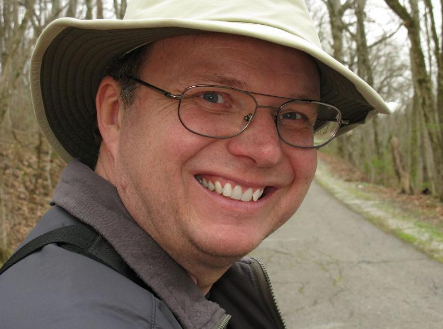
Richard Clements, PhD (Botany I & II, Winter Tree ID, Late Summer Wildflower Walk)
Dr. Clements is a Professor at Chattanooga State Community College and is the lead instructor for Environmental Science courses. He holds a B.S. in Biology from Tennessee Technological University, a M.S. in Plant Taxonomy from the University of Tennessee, and a Ph.D. in Plant Ecology from the University of Kentucky. In 2016, Dr. Clements was awarded Tennessee Science Teachers Association (TSTA) Science Educator of the Year for Higher Education for leadership roles in promoting science and outstanding contributions to science education that positively impact the community.
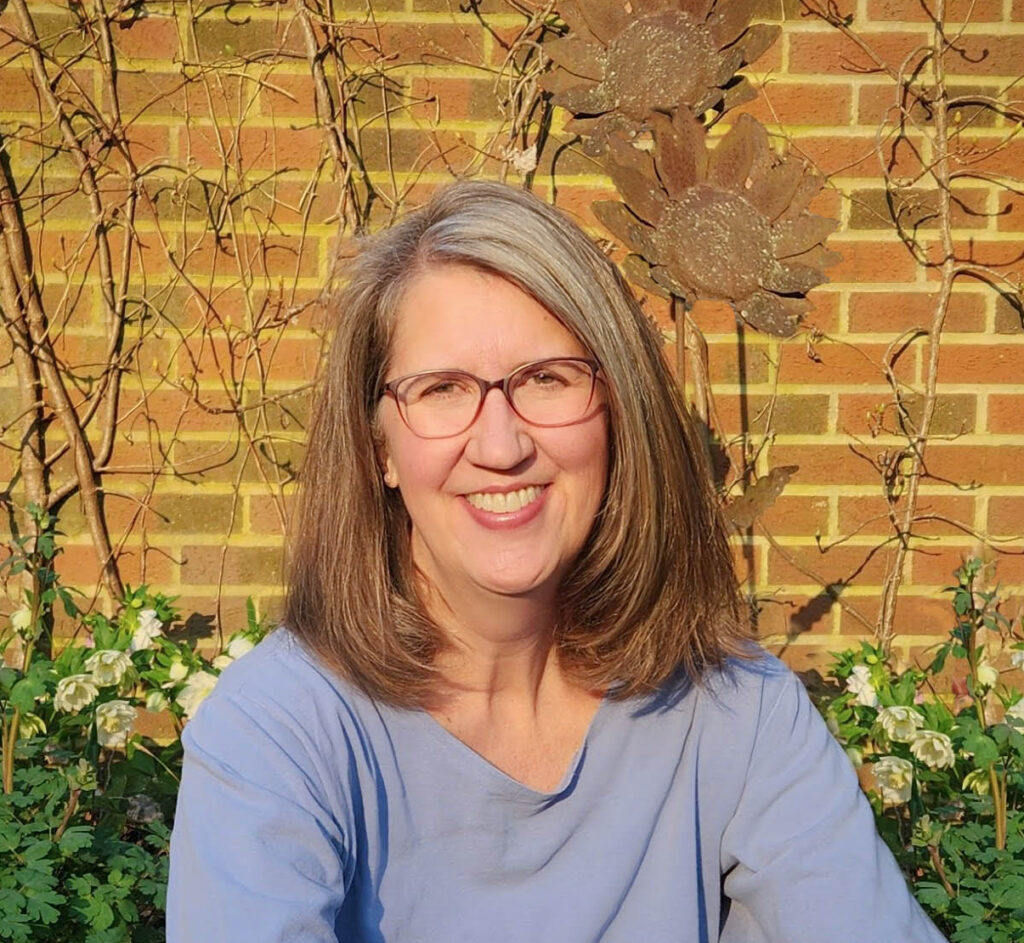
Shannon Currey (Using Natives Grasses and Sedges)
Shannon Currey is a horticultural educator with Izel Native Plants. She began her work life as a social scientist but changed careers to pursue horticulture in 2003. She studied horticultural science and landscape design at North Carolina State University and worked short stints at a landscape design firm and at Niche Gardens, a pioneering native plant nursery in North Carolina. In 2007, she began working at Hoffman Nursery, a wholesale grower specializing in grasses, sedges, and other graminoids. There, she developed a deep understanding of these specialized plants. Along the way, her interest in and commitment to using native plants grew. In 2022 she joined Izel Native Plants to focus on education and outreach. An online retailer, Izel helps consumers source native plants to create environmentally sound landscapes that support local ecosystems.
Shannon has shared her knowledge in nationally published articles and traveled throughout the country speaking to professional organizations, community groups, and at public gardens. She currently serves on the Perennial Plant Association’s Board of Directors and the North Carolina Plant Conservation Scientific Committee. She’s based in Durham, North Carolina and is enchanted by the incredible plant diversity that North Carolina holds.
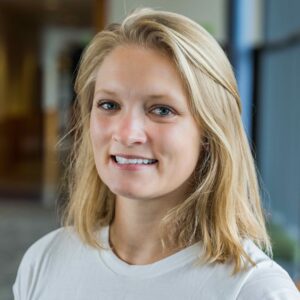
Emily Erickson, PhD (Pollination)
Emily is a postdoctoral researcher in the Department of Entomology at the Pennsylvania State University. Her doctoral thesis was concerned with describing the interactions between insect pollinator communities and cultivated ornamental plants. She has a deep interest in ecological gardening and using native plants to design landscapes in gardens and parks that will support and build resilient ecological communities.
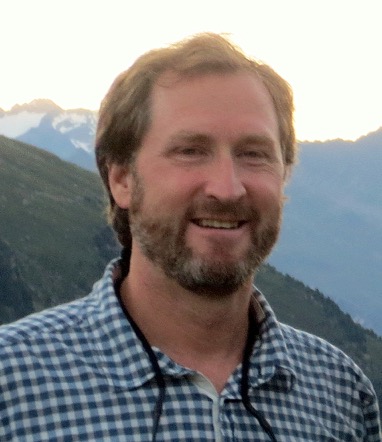
Jon Evans, PhD (Spring Wildflower Hike)
Dr. Jon Evans is a Professor of Biology at the University of the South in Sewanee, TN. His research in plant ecology focuses on plant population dynamics and the processes that determine the composition and structure of plant communities over time and across landscapes. He is specifically interested in the role of clonal growth as a mechanism for population persistence in plant communities. He also studies land-use history and exotic species introductions as drivers of long-term change in forest communities. Much of his research is conducted within ecosystems of the southern United States, concentrated on the southern Cumberland Plateau and on the coastal barrier islands.
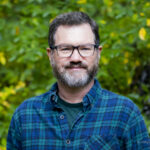
John Evans (Native Plant Conservation)
As Atlanta Botanical Garden’s Conservation Horticulture Manager, John is tasked with coordinating the propagation and care of their extensive conservation collections at both Midtown Atlanta and at the Conservation Safeguarding Nursery in Gainesville, GA. John is also active in field research efforts, participating in rare plant surveys, monitoring, and seed and tissue collection. John has previously served as Director of Horticulture for Reflection Riding Arboretum and Nature Center.
John earned his B.S. in Ecology and Evolutionary Biology from the University of Tennessee, Knoxville, where he participated in a number of plant ecology research projects. He then earned his M.S. in Environmental Science from the University of Tennessee, Chattanooga, during which his research focused on Botany and Plant Taxonomy. His master’s thesis was a floristic study of the Sequatchie Valley in Tennessee.

Charlotte Freeman (Biology of Liverworts, Mosses & Ferns; Native Plant Communities)
Charlotte Freeman has a Bachelor’s degree in Biology from Emory University and a Master’s degree in Zoology with a minor in Ecology from University of Florida. She taught biology at the university level and secondary school level for 38 years. She received the National Association of Biology Teachers Award for Outstanding Biology Teacher in the State of Tennessee in 1986. She received the Distinguished Teacher Award at Girls Preparatory School in 1989. Charlotte became an advocate for native plants about 25 years ago and has received her Certificate in Native plants from the Tennessee Valley Chapter of The Wild Ones. Her passion is converting her yard to native plants and propagating them as space allows. She has been instrumental in starting several other native wildflower gardens in the Chattanooga area.
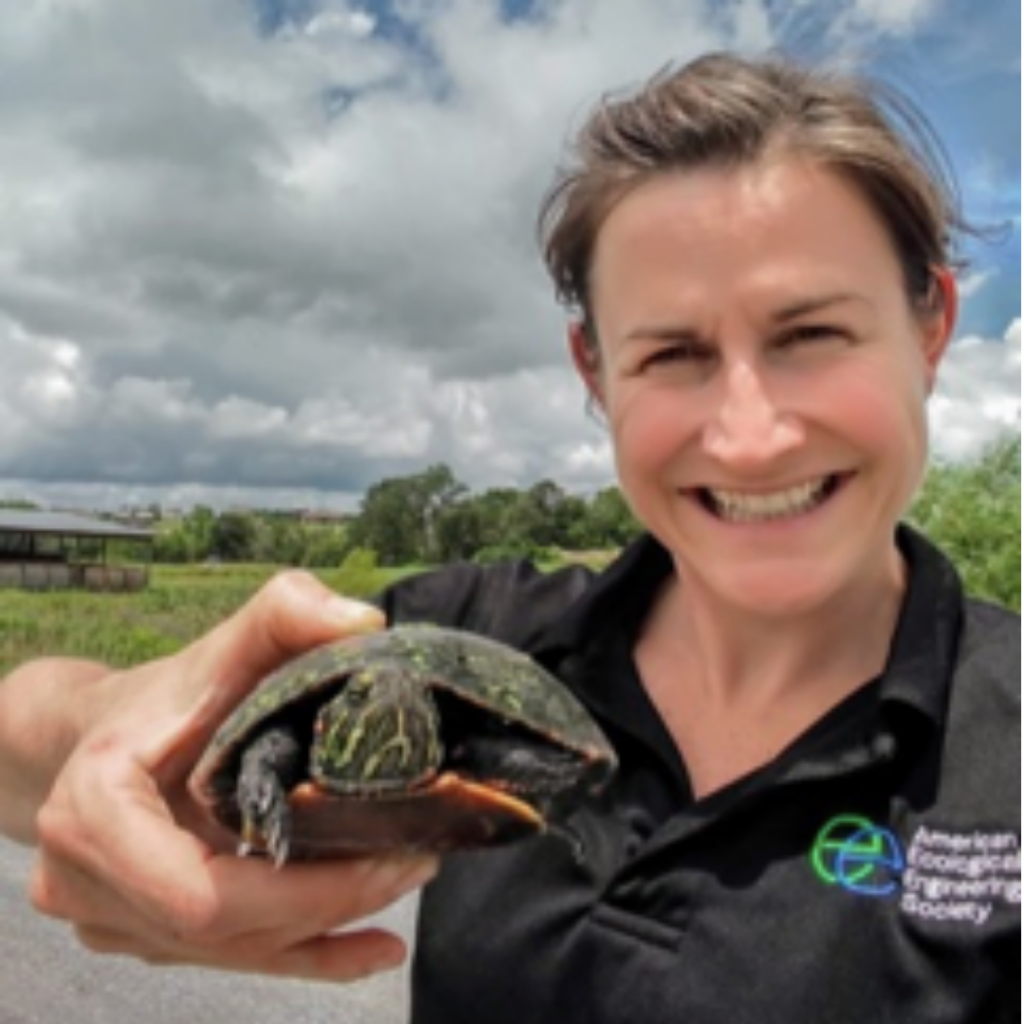
Andrea Ludwig, PhD, EIT (Soils & Water, Rain Gardens and More)
Dr. Andrea Ludwig is an Associate Professor of Ecological Engineering in the Biosystems Engineering & Soil Science Department at the University of Tennessee and has served as the Stormwater Management Specialist for UT Extension since 2010. She is the Program Director for Tennessee Smart Yards and co-leads Backyard STEM curriculum development for Tennessee 4H. She earned a Bachelor of Science in Bio & Ag Engineering and Masters of Science in Environmental Engineering from the University of Arkansas, and a PhD in Biological Systems Engineering from Virginia Tech. She is the Past President of the American Ecological Engineering Society and has been awarded the Moss Award, Hicks Award at UT as well as three departmental awards for her service activities. She is an avid trail runner and mountain biker and a budding naturalist.
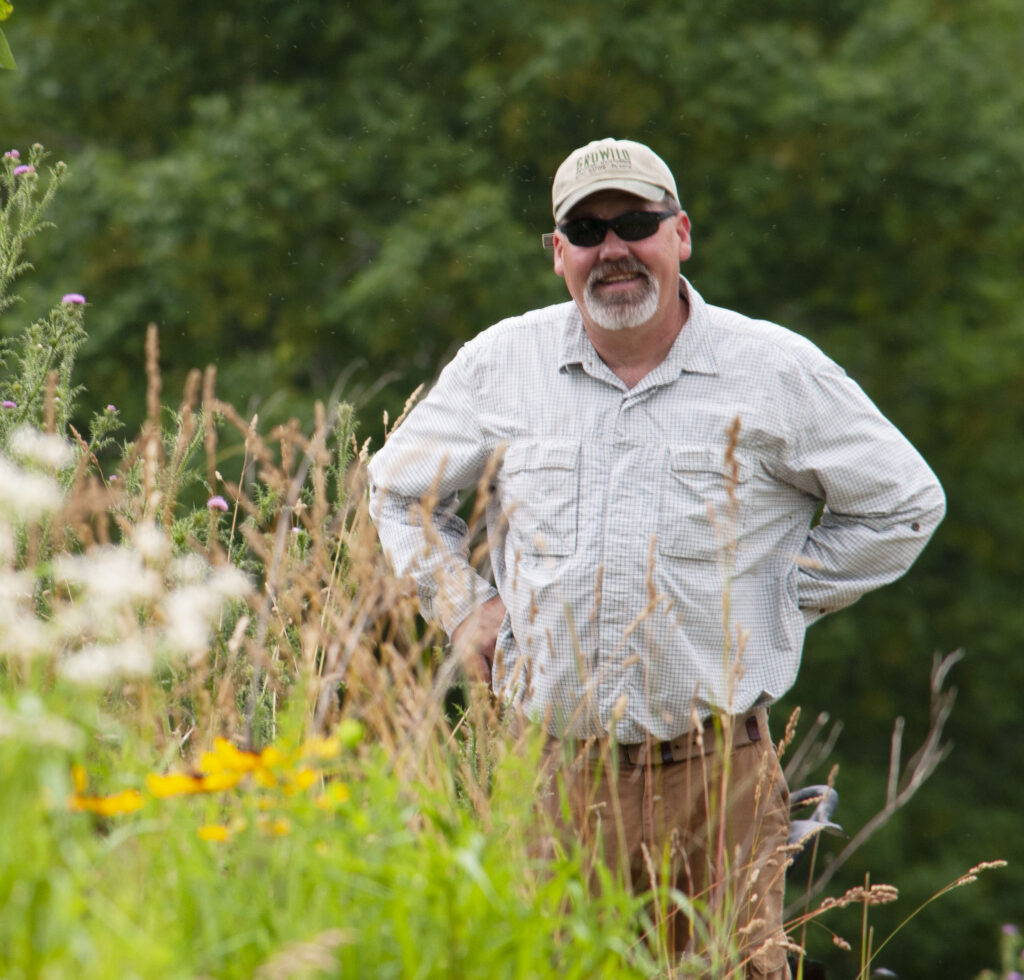
John Magee (Native Landscape Maintenance)
John Magee has been designing and building landscapes in the Washington, DC Metro area and beyond for the past 25 years. After receiving his B.S. degree in Agriculture from the Ohio State University and spending a few years training and showing horses, he settled into the industry as the General Foreman of Pennsylvania’s highest award-winning landscape firm. While in Pennsylvania, he became a volunteer at Hawk Mountain Sanctuary where he met his wife Susana and was introduced to habitat gardening and the use of native plants in the landscape. He now operates his own award-winning design firm (Magee Design) in the beautiful countryside of Middleburg, VA where he also enjoys kayaking and taking long walks with his wife and dog- Chewy. He created and hosts the award-winning Native Plant Podcast to help inform the public about the benefits of landscaping with native plants.
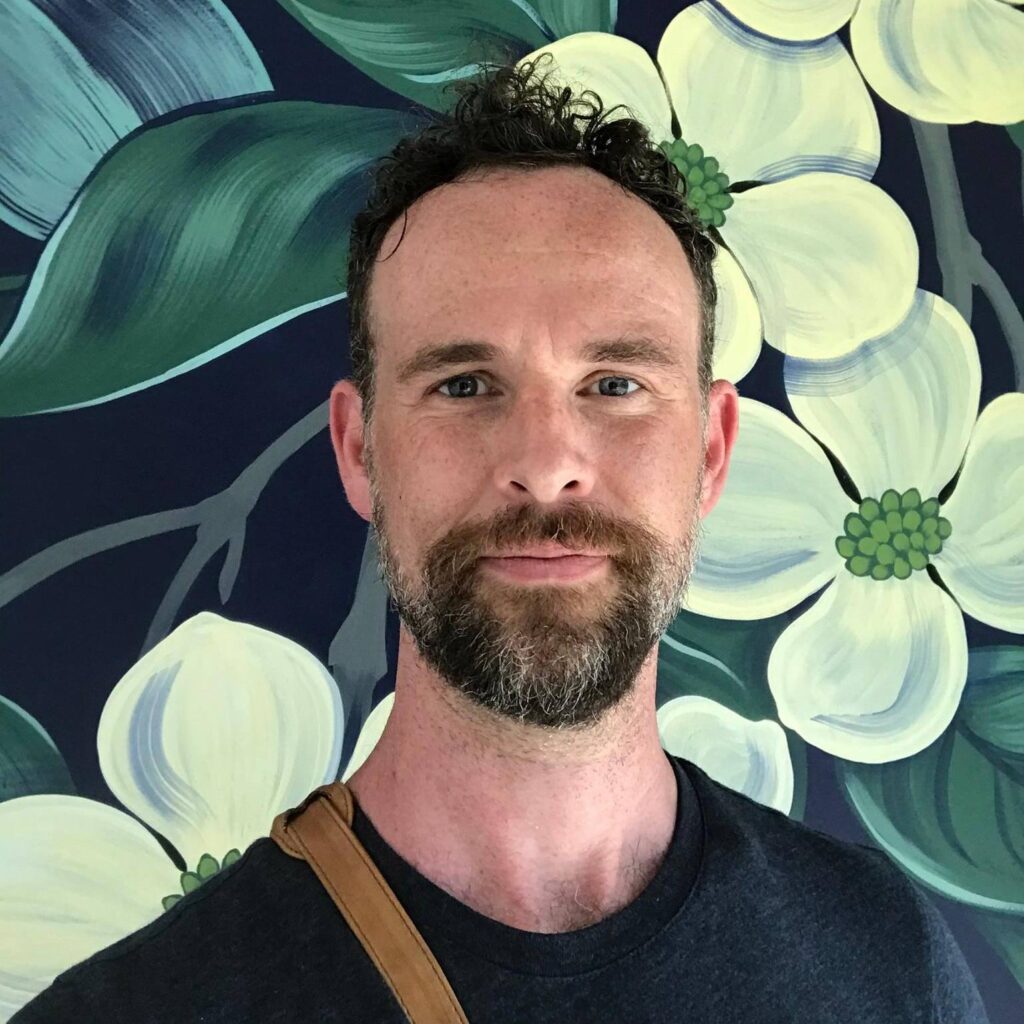
Preston Montague (Design and Maintenance Considerations for Building Bird Habitat with Native Plants)
Preston Montague, PLA, ASLA, is a landscape architect and artist who developed a passion for the natural world while growing up in the rural foothills of Virginia. Currently, he leads an environmental design and fine arts studio in Durham, North Carolina developing projects that encourage stronger relationships between people and the natural world for the purpose of improving public and environmental health.
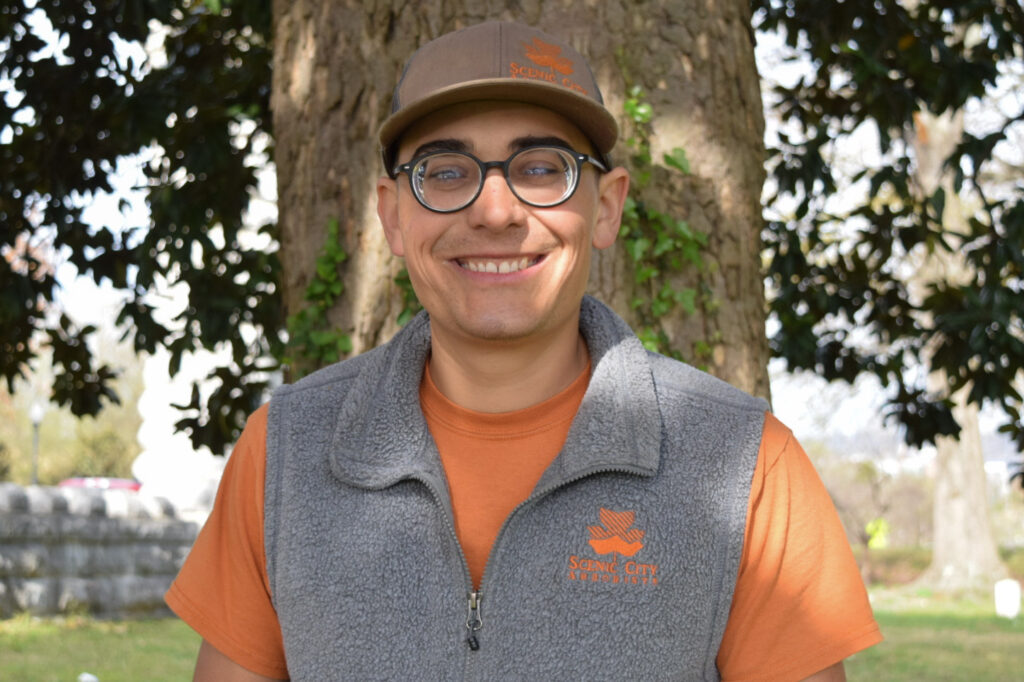
Benjamin JG Moore (Summer Tree Identification)
Benjamin Moore is Owner & Lead ISA Certified Arborist (SO-10280A) at Scenic City Arborists, ISA Tree Risk Assessment Qualified & Chattanooga Tree Commissioner. He has loved trees since the age of 5 when he started growing Oaks from acorns, and now he works in the trees and manages the day-to-day operations of Scenic City Arborists. He has a degree in urban planning and horticulture from Texas State University. Benjamin and his team focus on health improvement and risk mitigation of Chattanooga’s trees by providing the most up-to-date, scientifically-based tree care services and doing it in a safe, low impact way. Benjamin is an official volunteer for Tennessee Aquarium horticulture. He’s taught educational presentations for UT Extension, UTC, Audubon Acres & others. He’s also led tree planting tutorials for Nooga Night’s Rotary Tree Towns volunteer planting project and sits on the Chattanooga Tree Commission advising the City on tree-related topics. Outside of work, he enjoys botanizing, leaf pressing, rock climbing, gardening, graphic design, & photography.
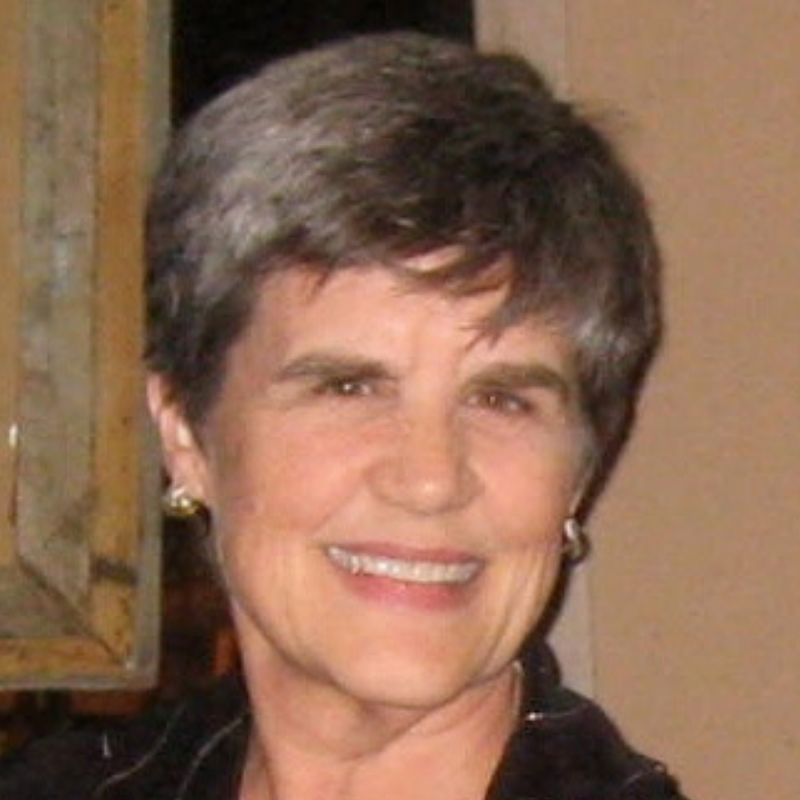
Mary Priestley (Pressing Plants, Botany I & II, Native Plant Communities)
Mary is the Sewanee Herbarium Curator and a nature journalist. She is editor and illustrator of the Friends of the Herbarium?s newsletter, The Sewanee Plant Press. Active in the Tennessee Native Plant Society, she has served as the society?s president and assisted in writing and editing the TNPS field guide, Wildflowers of Tennessee, the Ohio Valley, and the Southern Appalachians. In 2011 she authored William’s Wildflowers, a guide to wildflowers of the Southern Appalachians. In 2014, she published Fiery Gizzard: Voices From the Wilderness. Mary has been nature journaling for 15 years and has conducted several nature journaling workshops, including for the Great Smoky Mountain National Park Spring Wildflower Pilgrimage.
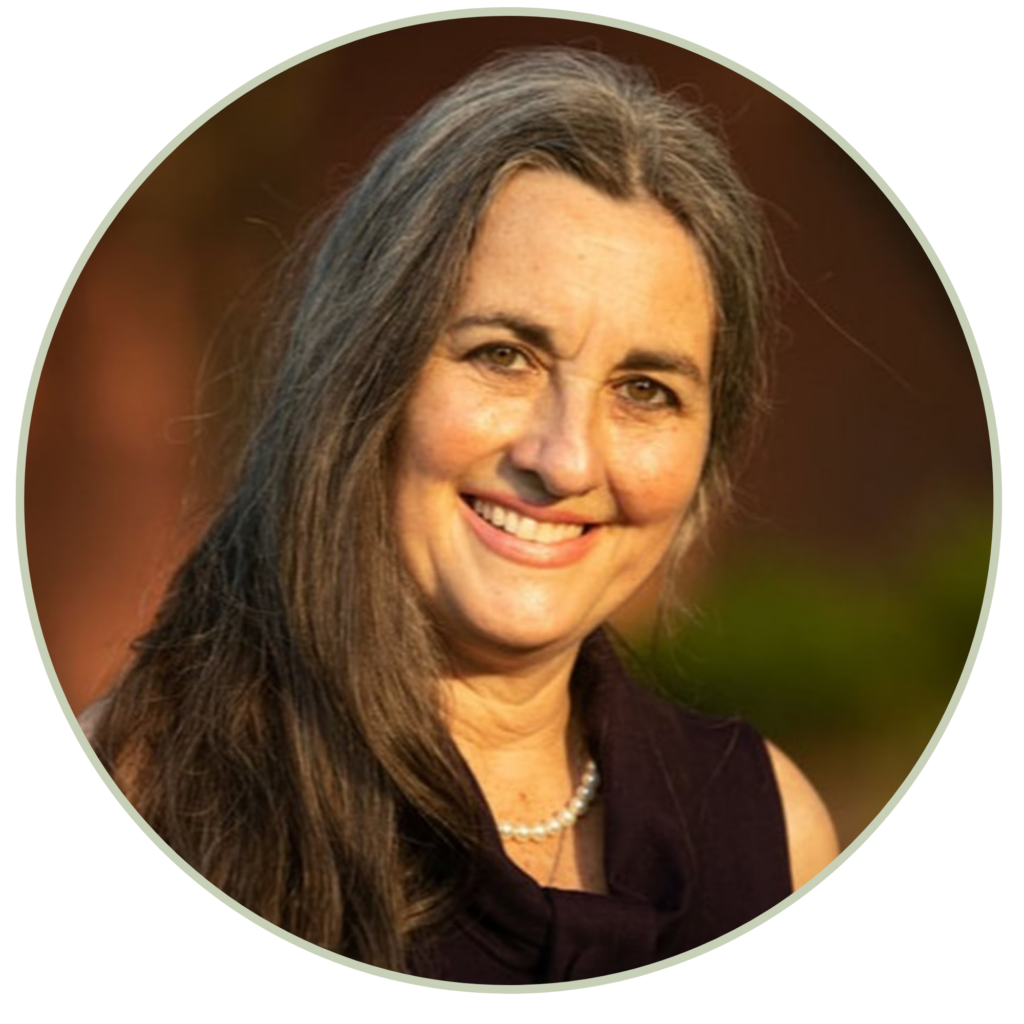
Janisse Ray (Nature Journaling)
Janisse Ray is a writer who explores the borderland of nature and culture. She has won an American Book Award, Pushcart Prize, Southern Bookseller Award, Southern Environmental Law Center Writing Award, Nautilus Award, and Eisenberg Award, among many others. Her bestselling first book, Ecology of a Cracker Childhood, was a New York Times Notable. Her latest collection of essays, Wild Spectacle, won the Donald L. Jordan Prize for Literary Excellence, which carries a $10,000 prize, and it was followed in 2022 by her reader-acclaimed novel, The Woods of Fannin County. Ray serves on the editorial board of terrain.org and is an honorary member of the Association for the Study of Literature and the Environment. She earned an MFA from the University of Montana, has received two honorary doctorates, and has been inducted into the Georgia Writers Hall of Fame. Ray lives and works inland from Savannah, Georgia, in the coastal plains of the southeastern U.S., where she tends a pollinator garden and watches the wild world around her.
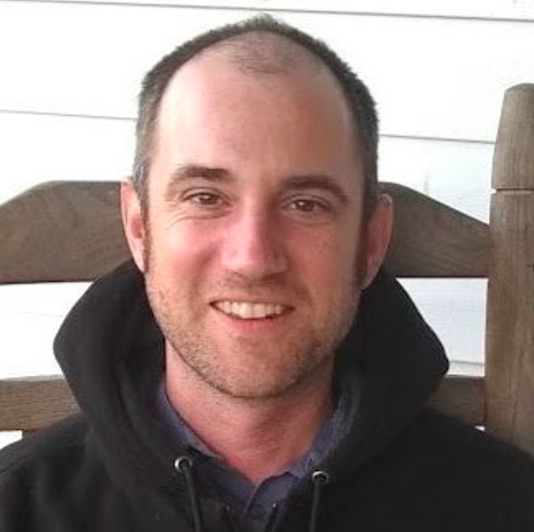
Pete Stewart (Summer Tree ID)
Pete Stewart is an Urban Forester in Chattanooga’s Public Works Department. He is responsible for the care of trees on city properties and rights-of-way, plans and inspects new tree plantings, and provides urban forestry outreach to residents and community groups. In 2005, Pete received a Bachelor of Arts degree from Wheaton College, Wheaton, IL where he majored in Environmental Studies. He received a Master of Science degree in Urban Forestry in 2019 from Virginia Tech, Blacksburg, VA. While working as a Graduate Research Assistant at Virginia Tech (2017-2019), Pete conducted a campus tree inventory of 8,500 trees, from data collection to a final report. He studied homeowner involvement in forest health with site visits and survey research. He worked as an arborist for over seven years, leading crews for both pruning and removal operations, and was a contract tree climber. Pete did volunteer work on several farms and community projects in Central America and southern Mexico and was a tutor for middle school students in earth science and math with AmeriCorps. He is a Certified Arborist and a Certified Pesticide Applicator.
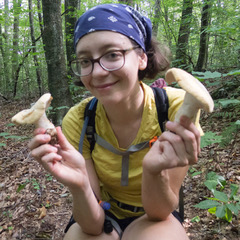
Rachel Swenie (Mycorrhizae and Fungi, Mushroom Hike)
Rachel Swenie is a PhD candidate in the Department of Ecology & Evolutionary Biology at the University of Tennessee, Knoxville. Her research focuses on species diversity and trait evolution among the chanterelle mushrooms and relatives. Rachel is a National Science Foundation Graduate Research Fellow and a passionate field mycologist who has worked extensively in the southern Appalachian mountains. Rachel has led guided fungi hikes for the Spring Wildflower Pilgrimage in the Great Smoky Mountains National Park and serves as the scientific advisor to the Cumberland Mycological Association of Tennessee.
